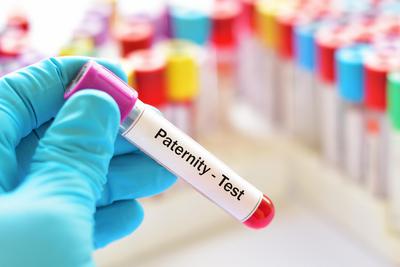The Future of Drug Testing at Work: Sci-Fi or Reality?
In recent years, drug testing in the workplace has progressed drastically. As new technologies emerge constantly, we're left wondering: What does the future hold for drug testing at work? Will we soon rely on science fiction-inspired innovations, or are we already witnessing the reality of advanced drug testing methods? Read more about the trends and innovations of workplace drug testing below.
Listen to article

The Traditional Drug Testing
For decades, drug testing has been a standard practice in many industries. The most common methods are urine and hair testing, which are commonly used to screen for substances like marijuana, opioids, and amphetamines. While these methods have been effective, drug testing has been evolving, which has brought innovative testing methods and even AI as possible solutions. So, one may wonder: What does the future of drug testing at work hold?
Innovative Approaches to Drug Testing
Oral Fluid Drug Testing
Oral fluid testing is becoming more popular. It involves collecting saliva, which can show if someone has used drugs recently. However, saliva drug testing still has many downsides, such as limited substance detection, higher contamination risks, limited lab confirmations, possible interference from oral hygiene products, shorter detection windows, and possible challenges with collecting adequate samples.
[link our new saliva blog]
Wearable Technology
Imagine a future where employees wear devices that keep track of substance use all the time. It might sound like a sci-fi movie, but wearable technology is becoming a reality. Some companies have made wristbands and patches that detect alcohol or drugs in sweat. These devices would give instant information and help employers keep the workplace safer. However, more research and testing are still needed before it becomes a new reality.
Lab-on-a-Chip Technology
Advancements in microfluidics have led to the creation of lab-on-a-chip technology. This innovative approach can simultaneously analyze a small blood, saliva, or urine sample for multiple substances. Lab-on-a-chip devices are portable, quick, and can deliver results in minutes. As this technology matures, it may revolutionize drug testing by providing immediate results that are accurate and reliable.
Changes in Legislation and Workplace Approaches
Drug Laws
As states continue to evolve their laws, especially by legalizing marijuana, drug testing as we know it is changing. Employers are beginning to reconsider their policies, especially in states where recreational or medical marijuana use is allowed. Some are even thinking whether pre-employment drug testing is necessary. On the other hand, the use of substances could pose serious dangers and lead to injuries, especially in safety-sensitive jobs.
Employee Wellness Programs
The focus on employee wellness is also growing and affecting drug testing practices. Organizations are often more focused on employees' mental health and well-being. Some companies have already started counseling and rehabilitation programs. In the future, companies may adopt a more compassionate stance toward substance use, focused on rehabilitation rather than termination.
The Role of AI
Artificial intelligence (AI) also affects drug testing, especially through predictive analytics. AI can look at data from different sources, find patterns, and predict potential substance abuse before it becomes a problem. This helps employers keep the workplace drug-free while also supporting employees who may need help. AI can also improve the accuracy of drug tests. Machine learning can be used to recognize patterns in test results, which can lower false positives and make tests more reliable.
What's Next?
Workplace drug testing is evolving with new technology, AI, and changing public opinions. These advancements are already shaping the future, and even bigger changes are on the way.





